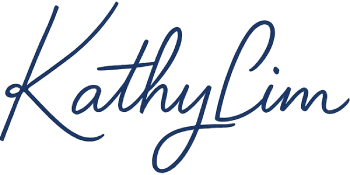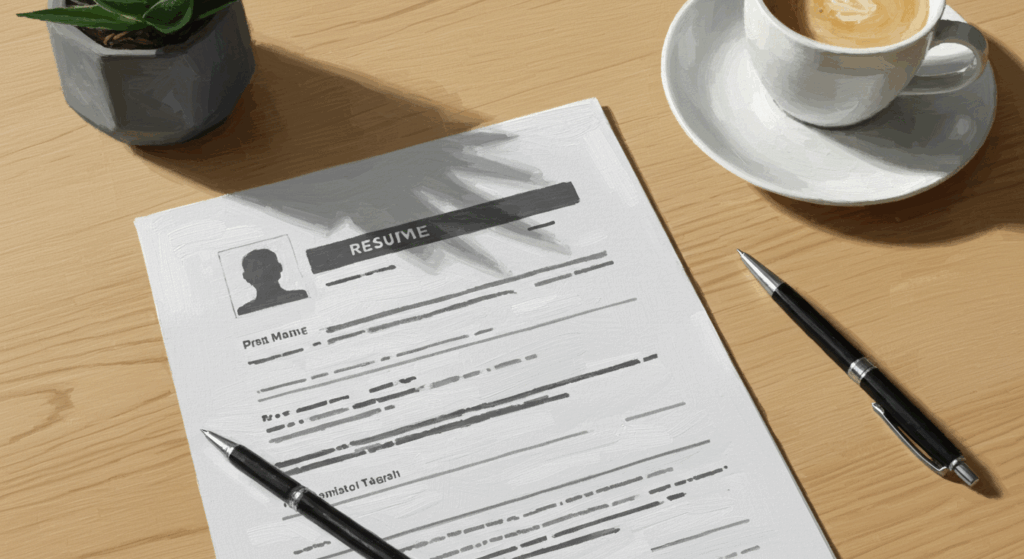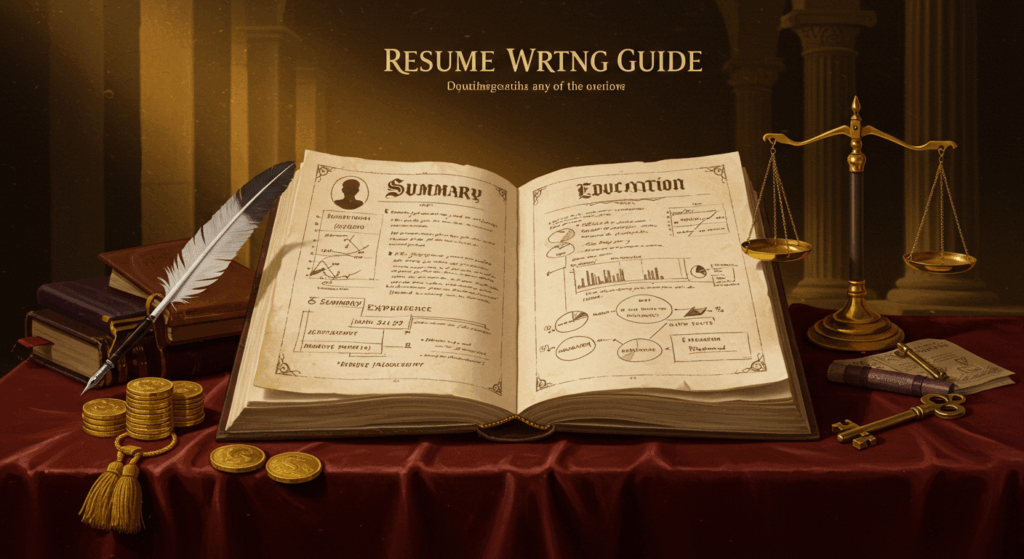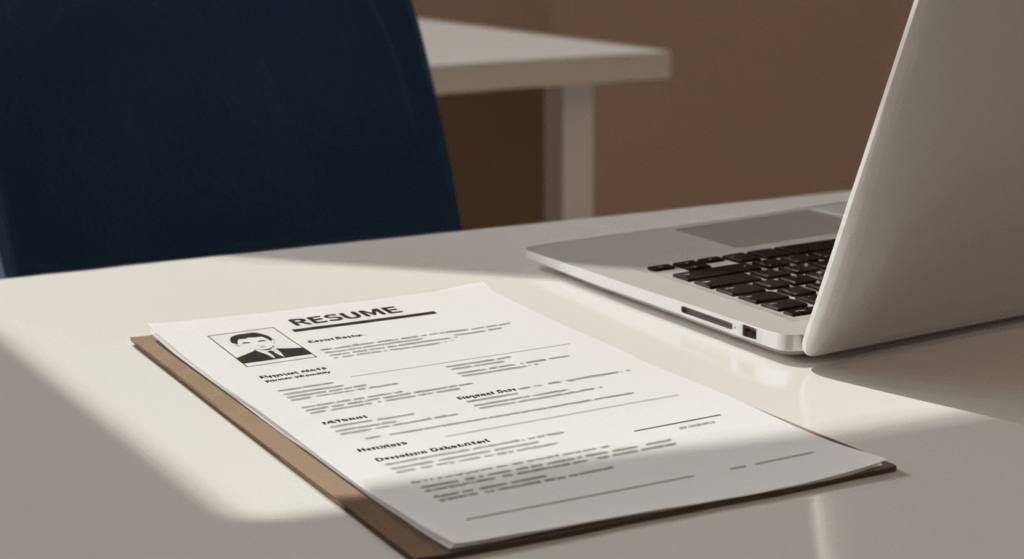Okay, so let’s be real for a sec. Writing your resume? Not exactly the most exciting thing in the world. I’d much rather binge a whole season of some Netflix show I don’t even like that much than sit there staring at a blank Word doc trying to figure out how to make myself look “hireable.” But here we are.
And here’s the kicker: it’s not just about throwing in your job titles and where you interned that one summer. Employers actually care a ton about something called soft skills. You’ve probably heard that word tossed around, but it’s basically stuff like communication, teamwork, problem-solving, adaptability… aka the things that make you not just a machine who can push buttons but a human who can actually work with other humans (wild concept, I know).
The tricky part? You can’t just slap “I’m good at teamwork” under your name and call it a day. Everyone says that. It’s like writing “I love traveling” on a dating profile—cool, but sooo does literally everyone else. You gotta show it in a way that feels real, relevant, and, ngl, strategic.
So let’s talk about how to actually include soft skills on a resume without sounding fake or boring. I’ll break it down in a chill, step-by-step way, and hopefully make it less painful than watching your Spotify app buffer mid-song.
Why Soft Skills Even Matter
Here’s the thing: hard skills (like coding in Python, speaking Spanish, or knowing Photoshop) are super important. But they’re kinda useless if you don’t have the people side to back it up. Imagine a genius graphic designer who can whip up the most gorgeous visuals ever… but they can’t take feedback, miss every deadline, and throw shade in group chats. Nobody wants that on their team.
Soft skills are the glue that holds your hard skills together. They’re what makes hiring managers think, “Okay, this person could actually work here, not just exist here.” And with so many jobs being hybrid/remote now, being able to communicate well, manage your time, and stay motivated kinda matters even more.
The Big Mistake Most People Make
Let’s start with what not to do: don’t just make a random “Skills” section at the bottom of your resume and dump a bunch of generic words like:
- Communication
- Leadership
- Problem-solving
- Teamwork
…because honestly? That doesn’t say anything. It’s basically resume wallpaper. Employers skim that and their brain goes, “Yeah yeah, same thing everyone else said, next.”
What you need to do instead is show your soft skills through context and examples. Like, how did you actually use communication in a real job or project? How did you demonstrate leadership instead of just claiming you have it? That’s the move.
The Secret Sauce: Blending Hard + Soft Skills
Here’s a pro tip: soft skills hit way harder when you pair them with your actual job responsibilities. Think of it like adding hot sauce to your burrito—it makes everything way more flavorful.
Example:
Instead of writing:
- “Strong leadership skills”
Write something like:
- “Led a team of 6 interns to launch a social media campaign that grew engagement by 30%”
See the difference? You’re not just saying you have leadership skills—you’re proving it with results. And ngl, numbers always look sexy on a resume.
Where to Include Soft Skills (Without Overdoing It)
Okay, so now you’re probably wondering: “Cool, but where exactly do I put these soft skills?” Fair question. Here are the main spots:
1. Work Experience Section
This is the prime real estate. Every bullet point under your jobs should sneak in both hard skills (the technical stuff) and soft skills (the human stuff). Example:
- “Collaborated with cross-functional teams to redesign onboarding process, improving new hire satisfaction scores by 20%.”
That’s teamwork + communication + problem-solving all in one line. Boom.
2. Summary or Profile Section
You know that little blurb at the top of your resume that’s like your elevator pitch? That’s a great place to drop a couple of soft skills that define you, but make sure they sound natural. For example:
“Detail-oriented marketing grad with a knack for storytelling and a proven ability to manage projects under tight deadlines.”
3. Skills Section (But Do It Right)
Okay, remember earlier when I said don’t just list “communication” and “teamwork”? I still stand by that. But you can have a skills section if you do it creatively. For instance:
- Communication (Public speaking, client presentations, active listening)
- Leadership (Team coordination, mentoring junior staff)
- Adaptability (Thrived in remote-first environments, quick learner of new tech tools)
Now you’re giving actual substance, not just buzzwords.
The Resume + Portfolio Combo Move
Here’s something a lot of people skip: pairing your resume with a portfolio. If you’re in any creative, marketing, writing, or even tech field, Resumes & Portfolios go together like cold brew and oat milk.
Why? Because your resume says, “Here’s what I can do,” and your portfolio shows, “Here’s me actually doing it.” And guess what—your portfolio is an awesome place to highlight soft skills too.
For example, let’s say you have a case study in your portfolio about a group project. Don’t just show the final design or campaign. Talk about how you worked with the team, managed deadlines, handled conflict, or adapted when the client changed direction last minute. That’s gold.
Some Soft Skills You Probably Already Have
Here’s the funny thing: you might be thinking, “Ugh, I don’t even know what soft skills I have.” But trust me, you probably have way more than you think. Let’s list a few common ones and how you might sneak them into your resume:
- Communication: Did you give presentations in college? Lead a Zoom meeting? Answer customer emails? Boom, that’s communication.
- Problem-Solving: Ever had to fix a broken system at work or figure out how to make something more efficient? That’s problem-solving.
- Time Management: If you balanced school, work, and still managed to binge Stranger Things, congrats—you’ve got this one down.
- Teamwork: Group projects (even if they were annoying), sports teams, part-time job shifts—teamwork is everywhere.
- Adaptability: Remember 2020 when literally everything changed overnight? Yeah, we all had to learn this one real fast.
Making Soft Skills Sound Less Cringe
Okay, ngl, sometimes writing soft skills on a resume feels super cheesy. Like, how do you say “I’m good with people” without sounding like a walking Hallmark card?
Here are some swaps that feel fresher:
- Instead of “Team player,” try “Collaborated with diverse groups to achieve XYZ result.”
- Instead of “Strong communicator,” try “Facilitated weekly client check-ins, ensuring alignment and satisfaction.”
- Instead of “Problem solver,” try “Identified inefficiencies in process and implemented new system, saving 10 hours per week.”
It’s all about showing, not telling.
The Balance Game: Don’t Overload
Here’s a warning: don’t go soft-skill crazy. If every bullet point on your resume screams “collaborated,” “communicated,” “adapted,” it gets repetitive fast. Balance it out with your hard skills so it feels natural. Like mixing a good playlist—you need a variety, not the same vibe on repeat.
Tailoring Soft Skills for Each Job
Yep, I know, tailoring your resume for each application is kinda annoying. But it works. If the job posting specifically says they want someone who’s detail-oriented and good at multitasking, make sure those soft skills come through in your resume.
Quick hack: copy-paste the job description into a doc and highlight the soft skills they mention. Then cross-check your resume to see if you’re actually showing those skills. If not, tweak your bullets. Easy.
Using Soft Skills in Cover Letters Too
Tiny side note: don’t forget your cover letter. That’s actually an even better place to show your soft skills because you can tell a little story. Like:
“When our team’s project deadline got moved up unexpectedly, I organized quick daily check-ins to keep everyone aligned and motivated, which helped us deliver ahead of schedule.”
That one sentence shows leadership, communication, and adaptability all at once. Employers eat that stuff up.
Common Soft Skills Employers Love Right Now
Based on, like, every job listing I’ve seen lately, here are the top soft skills employers can’t get enough of:
- Adaptability (because things change fast)
- Communication (especially remote)
- Leadership (even in small ways)
- Problem-Solving (be the fixer, not the complainer)
- Emotional Intelligence (understanding people, not just tasks)
- Time Management (aka getting stuff done without burning out)
If you can show even a couple of these on your resume, you’re in good shape.
Final Thoughts: Making Your Resume Feel Human
At the end of the day, your resume isn’t just a list of jobs—it’s basically your personal trailer. It’s supposed to make hiring managers curious enough to “click play” and call you in for an interview.
Soft skills are the part that make you look like a real person, not just a collection of job titles. The trick is weaving them in naturally, showing receipts with examples, and balancing them with your hard skills. And if you’ve got a portfolio, pairing it with your resume makes your case even stronger. (Seriously, Resumes & Portfolios are such a power combo.)
So next time you sit down to edit your resume, don’t just think, “How do I list all the things I’ve done?” Ask yourself, “How do I show that I can work with people, solve problems, and not totally freak out when plans change?”
That’s the stuff employers really want to see.
Quick Motivation Before You Go
I know this process can feel overwhelming. Like, why can’t jobs just swipe right if they like you? But trust me—taking the extra time to include soft skills in the right way can totally change the game for you.
So grab your resume, do a little editing session (snacks encouraged), and start weaving those soft skills in. You’ve already got them—it’s just about making them visible.
And who knows? The next time you send out your resume, it might just land you that interview. Then it’s on you to bring the same energy in person. You got this.









